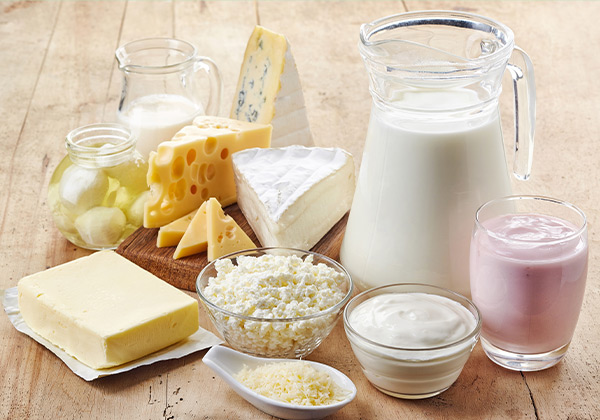We get it. Storing dairy can get confusing. Dairy is not like other foods. It requires specific conditions to stay safe. Know that dairy items can spoil very quickly in case of minor negligence. That is why it is essential to pay extra attention to keeping the food safe. We all know that dairy is a necessity for all human beings. Almost everyone consumes dairy regularly. Hence, it is crucial to understand the storage requirement of such must-have foods.
Many people do not even know what food falls in the dairy section. Dairy food includes food items from animals such as milk, cheese, and yogurt from the multideck display fridge. These foods are healthy for us since they provide healthy fats, proteins, and nutrients. But keeping dairy food safe is a challenge itself. That is why we are mentioning a list of dairy products and methods to keep them safe.
Milk
The most common dairy item is none other than milk. Know that milk can spoil very quickly. Buy milk at the end of your shopping spree. This way, it does not rot. Do not let milk stay on the shelf for more time. Bacteria can grow in milk quickly. Make sure you put it in the refrigerator as soon as you buy milk. You have to preserve milk in the coldest part of your refrigerator. Make sure that you close the lid of the milk when storing it. Odor and moisture can also spoil your milk.
Cheese
Your cheese can stay safe on the shelf for a few hours depending upon the temperature of its surrounding. If the temperature is low, your cheese will not spoil. But at a high temperature, the cheese will start to melt. Store your cheese in the refrigerator. The best area to store your cheese is the vegetable box of your fridge. Place cheese in wax or parchment paper and then store it in the refrigerator. Make sure you do not store cheese at a slightly low temperature. If you notice any mold on cheese, remove it as soon as possible.
Eggs
When you buy eggs, make sure you choose uncracked ones. Clean eggs mean a longer shelf life. Your eggs will stay safe at room temperature for one day. After a day or two, put your eggs in the refrigerator. Make sure you do not store refrigerated eggs at room temperature. The cold eggs will start to sweat and spoil on the shelf. It can also increase the growth of bacteria and contaminate the eggs. Do not store eggs in the refrigerator door.
Cream
Your cream does not belong on the counter of your kitchen. Know that cream can spoil in seconds if you neglect it. Place your cream in the refrigerator as soon as you buy it. Freezing cream is also not a good idea. Your frozen cream will release water after you thaw it. It can affect the taste and the texture of your cream. Store your cream in an airtight container. Try not to leave the container open for a long time.
Butter
During winter, your butter will not spoil on the counter. You can store it on the shelf for a few days. But in summer you will need to put it in the fridge. Make sure you store butter in an airtight container. Keep butter away from vegetables to avoid chances of cross-contamination.


Comments are closed.